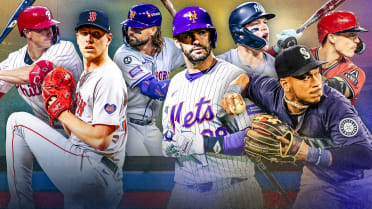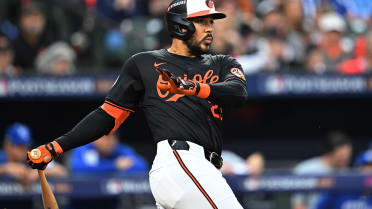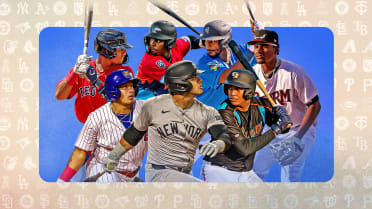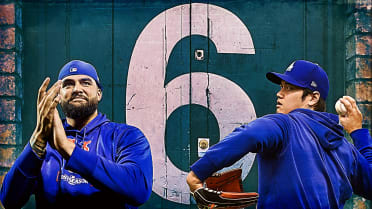Dombrowski dives deep into state of Phils
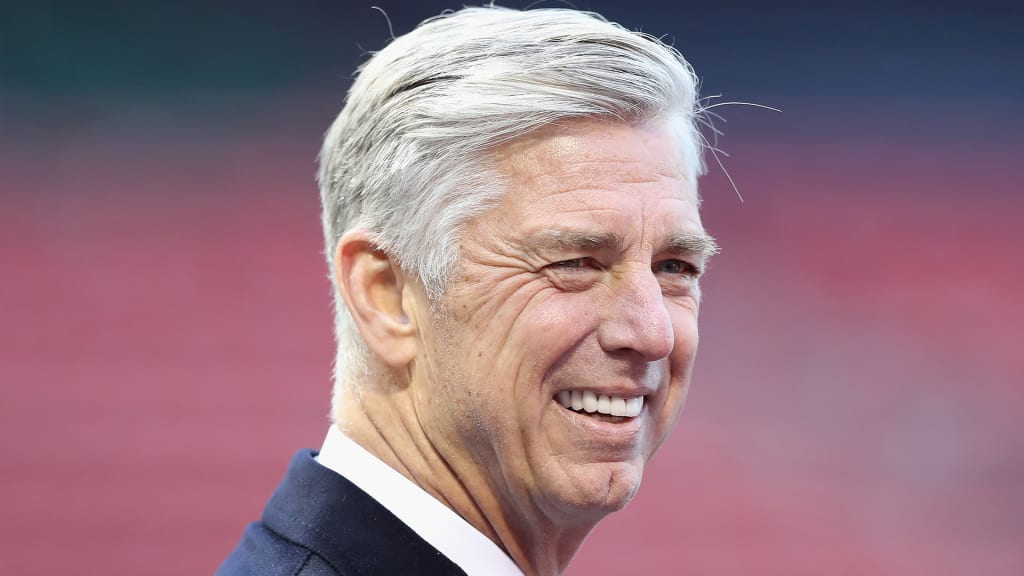
Dave Dombrowski still likes to see and hear things for himself, so if there is something happening on a baseball field this spring in Clearwater, Fla., there is a good chance he is there.
How else can he learn about his team, if not in person?
For more than a month, Dombrowski has observed the people and the operations that he heard so much about since becoming Phillies president of baseball operations in December. He has engaged general manager Sam Fuld, his four assistant general managers and numerous others at BayCare Ballpark and Carpenter Complex. He has re-engaged those who were marginalized over the past five years. He is talking and listening and assessing the state of an organization that should be better following a lengthy and expensive rebuild. But in a recent conversation on a cloudy morning at BayCare, Dombrowski expressed optimism.
“When I joined Detroit, they had eight straight losing years,” Dombrowski said. “It was bad. The big league club was bad. The farm system was bad. The makeup of the players wasn’t good. This was a rebuild. There were no ifs, ands or buts about it. That’s why when I came here, of course, they haven’t [made the playoffs] in nine straight years, but there had been some .500 years. It’s so different than that because there’s a lot of good players here. And a lot of good people. And so, I really find it’s a significant difference.”
He starts with the big league roster.
“I wasn’t really hired with any promises for this year,” he said. “We were going to try to build a really good ballclub in the future. We didn’t think we were a player away. So, let’s not do anything that’s foolhardy, like, trade [2020 first-round pick Mick] Abel for a guy that’s got one year left. ‘Hey, no problem. I get it.’
“I know [owners John Middleton and the Buck family] wanted to sign J.T. I mean, everybody wanted to sign J.T. I said, ‘We could sign J.T. back, but I don’t think we have a chance. I don't think we have a club to win. I mean, he’s a really good player, but I think we have too many other holes. If you want to get better, then we need to do other things.’ And only over time did they say, ‘You know what? Let’s do those other things.’ [Middleton] said, ‘Do it, go ahead and keep doing it.’ So, it changed. I didn’t know it would change. But I also know that he didn’t want to lose. Ownership, period, doesn’t want to lose.”
The Phillies hope acquisitions like José Alvarado, Matt Moore, Chase Anderson, Brandon Kintzler, Matt Joyce, Sam Coonrod and others can elevate them into contention.
They will need reinforcements along the way. Do they have enough? The Phillies’ farm system is ranked among the bottom 10 in baseball by multiple publications, including MLB Pipeline (No. 23). Organizational rankings are interesting. If a team receives high marks, it finds its way into interviews, press releases and media guides. If it receives poor marks, the response is the rankings are nonsense.
Naturally, the Phillies believe they are better than what others perceive. Ten players from their system made big league debuts last season. Four of them could make the Opening Day roster (Alec Bohm, Connor Brogdon, JoJo Romero and Spencer Howard). Others, like Mickey Moniak, could help at some point along the way.
“I’m always very careful when other people tell me like, well, there’s no talent,” Dombrowski said. “Because I’ve been on that side. But I’ve also been where I’ve been rated the number one system in baseball. And sometimes there’s not a lot of difference.”
Dombrowski offered two answers to one question about the Phillies’ system and its player-development processes. First, he pointed to homegrown talent like Bohm, Howard, Moniak and Adam Haseley as proof of production. Second, he mentioned recent changes in player development. He cited player development director Josh Bonifay, who was hired in October 2018, and amateur scouting director Brian Barber, who was hired in October 2019. He praised both.
“You’ve got to kind of follow the process,” Dombrowski said. “We don’t have a lot of guys on our 40-man roster right now that you’re sitting there saying, ‘This guy’s not any good.’”
Dombrowski will be listening to more people as the Phillies move closer to finalizing their 26-man roster before April 1. Former general manager Matt Klentak kept a small inner circle over his five years. Scouts and on-field personnel often felt disregarded or ignored. Several scouts lost their jobs last fall. Phillies president Andy MacPhail said then that modern technology provides more objective information about on-field performance, which is why scouting departments across baseball are shrinking.
Dombrowski still sees value in the old school.
“If they’re a good scout, they can project who may get better versus who may not,” he said. “The analytics don’t do that. It’ll just give you the basic facts. If you get a good scout, you’re in a position to say, ‘You know, this guy’s delivery is not good. I don’t think he’s going to get better.’ Or somebody else can say, ‘I like that delivery, but he needs to tweak this.’ Analytics can’t give you those things. Some scouts are so good that they just see that right away.
“The other thing is something that’s huge. They can tell you about the player’s makeup. And analytics can’t do that. And I’m a firm believer [in] I want to know what type of player we’re getting, what type of makeup the guy has. What you’re actually acquiring. Analytics can’t do that.”
He uses Alvarado as an example. The left-hander dominated in 2018, but he struggled with his conditioning and his performance over the past two seasons. Dombrowski sought opinions on Alvarado as a person and liked what he heard.
“If you just did analytics, it might stop at two years and say, ‘You know, the guy hasn’t done it,’” he said. “But getting that information, knowing he was in better shape, knowing his makeup, it makes a huge difference. When I say makeup, sometimes you take a guy that might not be the greatest guy in the world, let’s say. Let’s say everybody doesn’t love him. You can have all the disagreements on what’s great makeup, but on the field they’re competitors.
“You don’t want to get caught by surprise. And I think scouts, if you’re doing your homework and they’re good, they can get that information.”
Dombrowski sounds serious when he talks about striking a balance between new and old. Terry Ryan might be proof of that. The former Twins general manager joined the Phillies in November 2016 as a special assignment scout. He helped the small-market Twins win the American League Central four times during his 19 years spanning two stints with the team.
“Terry Ryan’s one of the most respected baseball men since I’ve been in the game,” Dombrowski said. “He really wasn’t doing very much. So, for me, you have to be using him. I mean, he goes back to when I first started and you’re learning the game. You’re talking about, why were the New York Mets so good? Well, they had great scouts. Terry Ryan, Joe McIlvaine. He’s a guy who progressed up the ladder to become a general manager from the scouting end of it. But anytime you would talk to people about evaluators of talent, Terry Ryan’s one of the most respected guys. So Terry’s involved in all the conversations we have now.”
Analytics will remain a big part of the Phillies’ decision-making process. Rightfully so. The best organizations in baseball have deep analytics departments. Dombrowski mentioned that his department pushed for Coonrod, whom they acquired from the Giants. The right-hander has impressed this spring.
But there will be more of a balance. More people will be heard.
“When I first started in the game, the argument used to be player development or scouting,” he said. “They don’t get along. Because player development blames scouting, scouting blames player development. That’s just how it was. Your goal was to mesh the two. I remember when I first started, we got to get our scouting right. We have to work hard at it. And I think we were able to achieve that.
“So now it’s gone to on-field baseball vs. analytics. And so it’s blending the two together and getting them to work together, which I think is achievable.”
Senior Reporter Todd Zolecki has covered the Phillies since 2003, and for MLB.com since 2009.

